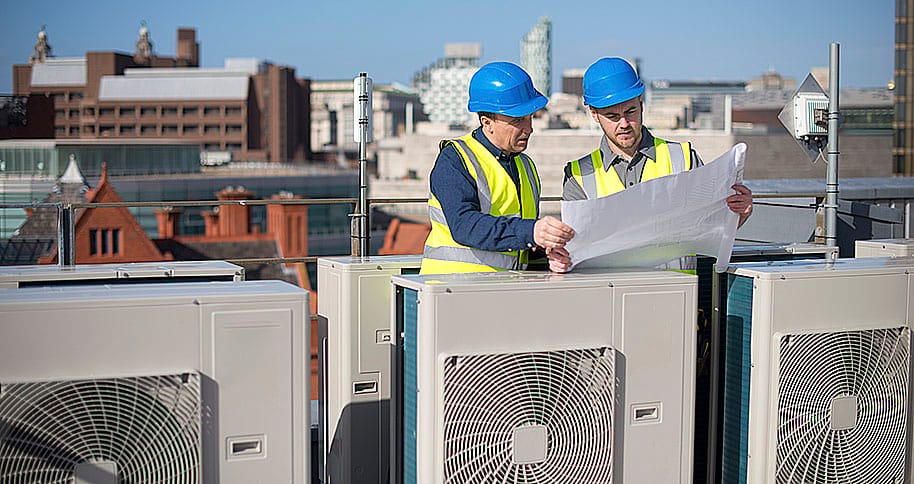Commercial settings heavily rely on functional air conditioning (AC) systems to ensure the comfort, productivity, and well-being of occupants. However, despite regular maintenance and preventive measures, AC emergencies can unexpectedly arise, disrupting daily operations. Therefore it can causes discomfort. This is where efficient commercial appliances repair services plays their important role.
How to Deal with AC emergencies in Commercial Settings?
Dealing with these emergencies promptly and effectively is crucial to minimize downtime, prevent potential damages. Therefore it maintains a safe environment for employees and customers. Here are the factors that can help you avoid or deal such emergency situations.
Signs of AC Emergencies to Watch Out For
Here are some key indicators that indicate potential AC emergencies in commercial settings. By staying vigilant and proactive, stakeholders can address these issues before they escalate into critical situations.
Insufficient Cooling or Heating
A noticeable decrease in the cooling or heating performance of the AC system is often an early sign of an impending emergency. Moreover, uneven temperature distribution, reduced airflow, or the inability of the system to reach the desired temperature can indicate issues such as compressor malfunction, refrigerant leaks, or clogged air filters. Therefore, prompt attention to these signs can prevent further deterioration and potential system failure.
Unusual Noises or Odors
Unusual noises, such as grinding, squealing, or banging sounds, emanating from the AC system can indicate mechanical problems or loose components. Additionally, strong and unpleasant odors, such as burning smells or musty odors, could be a sign of electrical issues, overheating, or mold growth within the system.Therefore, identifying and addressing these abnormal sounds and odors promptly is vital to prevent system breakdowns and ensure occupant safety.
Frequent Cycling or Constant Running
If the AC system cycles on and off frequently or runs continuously without reaching the desired temperature, it may indicate underlying issues. This could be caused by thermostat malfunctions, refrigerant leaks, or problems with the system’s control mechanisms. Hence, monitoring and addressing these irregular cycling patterns can help prevent energy waste, component damage, and system failures.
Water Leaks or Excessive Condensation
Water leaks or excessive condensation around the AC unit or in the surrounding areas can indicate drainage problems, clogged condensate lines, or refrigerant leaks. These issues not only affect the AC system’s performance but also pose risks of water damage, mold growth, and compromised indoor air quality. Therefore, timely investigation and repair are necessary to prevent further damage and maintain a healthy environment.
Immediate Steps to Take When an AC Emergency Occurs
When faced with an AC emergency in a commercial setting, taking immediate action is crucial to minimize downtime and prevent further damage. All in all, ensuring the safety and comfort of occupants
Assess the Situation and Ensure Safety
The first step in dealing with an AC emergency is to assess the situation and ensure the safety of everyone in the vicinity. For this reason, identify any potential hazards, such as electrical issues or water leaks, and take the necessary precautions to mitigate the risks. If needed, evacuate the area and follow established emergency protocols to ensure the well-being of the occupants.
Contact the Appropriate Personnel
Immediately notify the relevant personnel about the AC emergency. This includes contacting air conditioner repair services, building maintenance staff, or facility management. Furthermore, provide them with a clear description of the issue. This includes ay observed symptoms or abnormalities, to assist them in understanding the urgency and nature of the emergency.
Shut Down the AC System
If it is safe to do so, shut down the AC system to prevent further damage. Locate the main power switch or circuit breaker dedicated to the AC unit and turn it off. The reason for this is that it helps mitigate potential electrical hazards and protects the system from additional stress or malfunctions.
Document and Report the Incident
Thoroughly document the details of the AC emergency, including the time, date, and specific observations or symptoms. This can be done by taking photographs, to provide visual evidence of any damages or issues. This documentation will be valuable for insurance claims, facility management reports, and future reference.
Implement Temporary Measures
If the AC emergency occurs during extreme weather conditions, consider implementing temporary measures to maintain occupant comfort. This may include providing portable fans, opening windows for ventilation, or relocating occupants to areas with temporary cooling options, if available. These measures can help alleviate discomfort while awaiting professional commercial appliances repair.
Understanding the Importance of Reliable AC Systems
Understanding the importance of reliable AC systems is crucial for business owners, facility managers, and employees alike, as it directly impacts the efficiency of operations, customer satisfaction, and the overall success of the establishment.
Enhanced Comfort and Productivity
Reliable AC systems create a comfortable indoor environment, allowing employees and customers to work, shop, or engage in activities without being adversely affected by extreme temperatures. Hence, a well-regulated temperature promotes better focus, concentration, and productivity, contributing to an improved working environment and enhanced customer experiences.
Health and Well-being
Maintaining a consistent and controlled indoor climate is vital for the health and well-being of individuals in commercial settings. Reliable AC systems help regulate humidity levels, preventing excessive moisture that can lead to mold growth and respiratory issues. Additionally, they filter and circulate air, removing allergens, pollutants, and odors, thereby promoting a healthier environment for everyone.
Equipment and Asset Protection
In commercial settings, various equipment, machinery, and electronic systems are often in operation. Therefore, uncontrolled temperatures and humidity can cause damage to sensitive equipment, leading to malfunctions, downtime, and costly repairs. Reliable AC systems help maintain stable conditions, preserving the longevity and efficiency of valuable assets and reducing the risk of unexpected breakdowns.
Customer Satisfaction and Retention
Customers’ comfort and satisfaction are essential for the success of any commercial establishment. In the retail, hospitality, or entertainment sectors, a comfortable environment contributes to a positive customer experience, encouraging longer visits, increased sales, and repeat business. Reliable AC systems ensure that customers can enjoy a pleasant atmosphere, fostering loyalty and word-of-mouth recommendations.
Conclusion
Staying prepared and proactive in dealing with AC emergencies is essential for commercial building owners and facility managers. By recognizing the importance of reliable AC systems you can take necessary precautions for your comfort. Promptly addressing AC emergencies by taking immediate steps like contacting the HVAC repair services is necessary. Other precautions include shutting down the system if necessary, documenting the incident, and implementing temporary measures, enables a swift response and effective resolution of the issues. Therefore, by prioritizing preparedness and taking proactive measures, commercial establishments can safeguard their operations. They can also protect valuable assets, and provide a comfortable environment for employees and customers alike. topac


